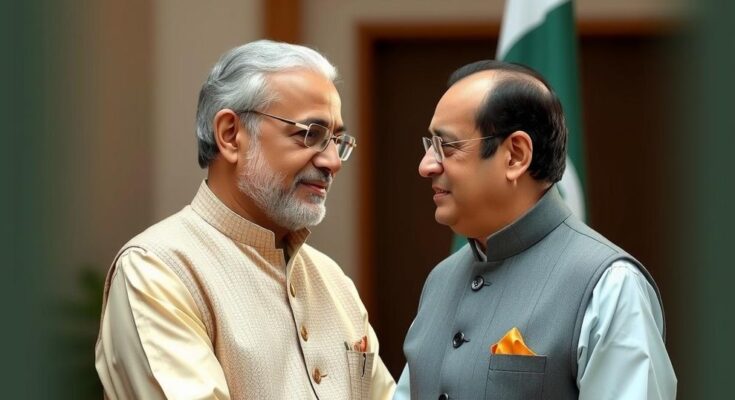In a noteworthy development, Bangladesh’s interim leader Muhammad Yunus met with Pakistani Prime Minister Shehbaz Sharif during the 11th D-8 Summit in Cairo. Yunus expressed intentions to resolve longstanding disputes stemming from the 1971 separation. The meeting emphasizes a possible rapprochement amid Bangladesh’s strained ties with India, aiming to foster collaboration and trade between Bangladesh and Pakistan.
Bangladesh’s interim leader, Muhammad Yunus, recently engaged in a significant meeting with Pakistan’s Prime Minister, Shehbaz Sharif, during the 11th D-8 Summit held in Cairo, Egypt. This meeting is perceived as a pivotal step for Bangladesh, particularly in light of its increasingly strained relations with India. Yunus articulated his desire to address longstanding issues that have persisted since the 1971 separation from Pakistan. The historical context of this division stems from a civil war that ultimately led to Bangladesh’s independence, fostering a closer alignment with India over the years.
The political landscape in Bangladesh has shifted drastically, especially following the ousting of Sheikh Hasina, the current Prime Minister, who has sought political refuge in India to escape political turmoil at home. With India maintaining a supportive stance towards Hasina, the new leadership exhibits a more cautious approach towards its neighbor. Prime Minister Sharif took to social media platform X to express the cordial nature of his exchange with Yunus, highlighting discussions on enhancing historical ties, trade relations, and cooperation in multiple sectors including IT, chemicals, and surgical goods.
The statement from Yunus emphasized the critical need to resolve disputes that have historically impeded the progress between Pakistan and Bangladesh. His sentiments reflect a broader aspiration for reconciliation and collaboration that both leaders acknowledged during their dialogue. This meeting signals an evolving dynamic in South Asian politics, indicating a potential thaw in relations between the two countries.
The historical context surrounding the relations between Bangladesh and Pakistan dates back to the civil war in 1971, which resulted in Bangladesh’s emergence as an independent nation. Originally, the two countries were united; however, their split has created a complicated legacy characterized by conflict and division. The current political scenario has been influenced by the recent political unrest that led Sheikh Hasina, the previous leader of Bangladesh, to seek asylum in India, thereby deepening ties with New Delhi. As relations between Bangladesh and India have become increasingly strained, the interim leadership under Muhammad Yunus aims to pivot closer to Pakistan, signifying possible shifts in regional collaboration dynamics.
In summary, Muhammad Yunus’s meeting with Prime Minister Shehbaz Sharif at the 11th D-8 Summit marks a significant development in Bangladesh-Pakistan relations, particularly against the backdrop of their respective historical grievances. This reunion aims to address unresolved issues from the past and to enhance cooperation in various sectors, reflecting a mutual commitment towards improved bilateral ties. This evolving relationship may pave the way for a new era of collaboration between the two nations, focusing on shared prosperity and development.
Original Source: www.india.com




